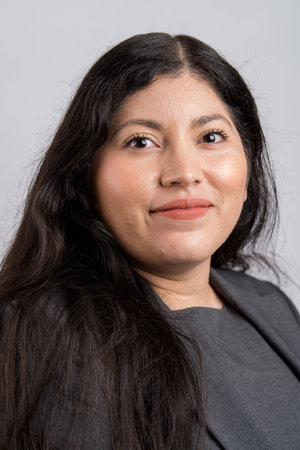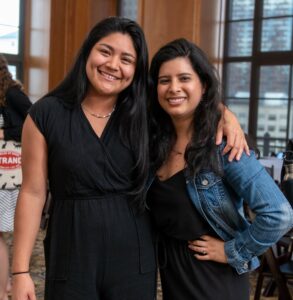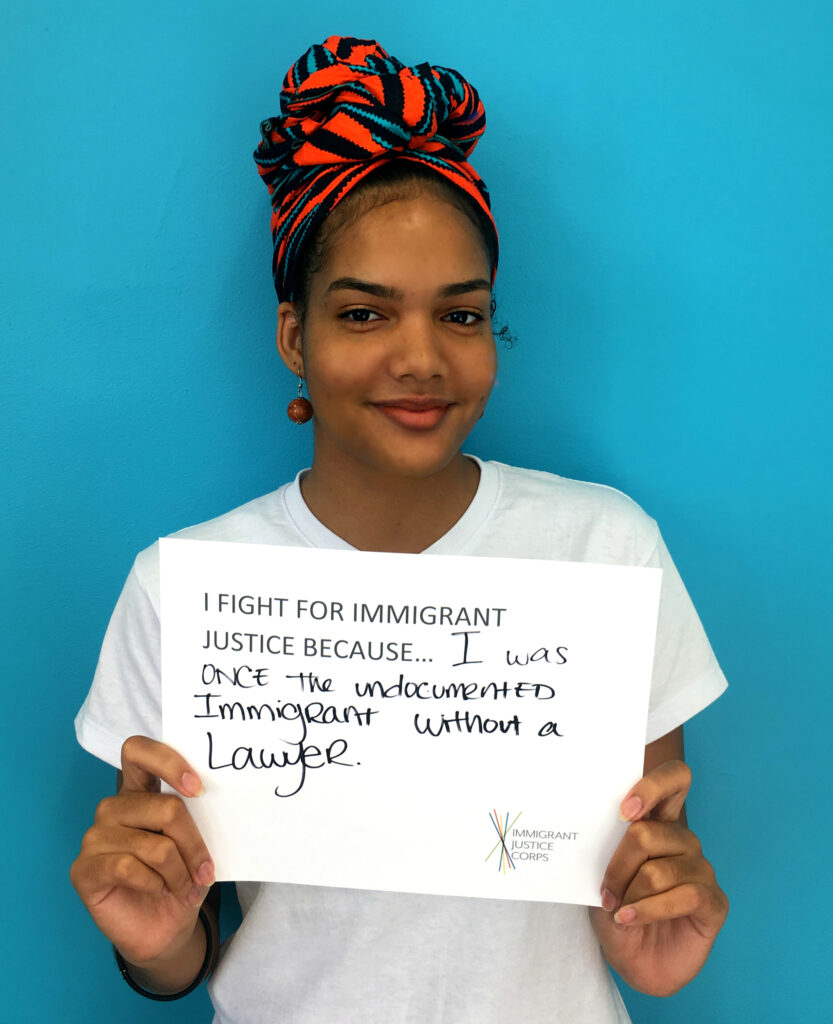Changing the legal landscape in Miami
In 2018, Immigrant Justice Corps expanded its reach to Florida, placing two Justice Fellows, Jasmine Brito and Brizeyda Parada Umana, with Catholic Legal Services (CLS) in Miami to build representation capacity for detained immigrants. The Fellows were assigned to the Broward Transitional Center (BTC), a facility notorious for its lack of pro bono services and unsympathetic immigration judges.
It is so difficult to win a removal case at BTC that private attorneys charge clients an additional premium for representation. “These judges were among the worst in the country,” said Executive Director of CLS Miami, Randy McGrorty. To make matters worse there were barely any pro bono lawyers taking on clients at BTC. One judge had a denial rate of 96% on asylum cases. Another ordered a woman with mental health issues removed “in absentia” even though she was present in the courtroom.
“A lot of detainees were unrepresented and many had very good cases with a high chance of being released from detention. But because they weren’t represented, they remained detained or were eventually ordered removed,” said Peterson St. Philippe, Managing Attorney at CLS.
With the addition of IJC Fellows Jasmine and Brizeyda, more detainees have representation. Case by case, they have slowly changed the landscape at BTC, holding the court and government lawyers accountable and building on the groundwork laid by CLS to ensure their clients get a fair day in court.
The judges started seeing Jasmine and Brizeyda’s well prepared cases and excellent arguments, sparking a change. “Having the Fellows in court every week, that is super important. It lets the judges know that there are people who care and pay attention to what they are doing,” said Peterson.

“Observation is important because judges behave differently when they are being watched,” recounted Randy. For example, if a detainee appeals a bond case the judge has to write a decision, which takes effort and time. If bonds are never appealed, then judges have no oversight.
According to Brizeyda, judges are definitely more careful about what they do now that she and co-Fellow Jasmine are present in court. For example, one judge at BTC regularly cited an obscure 2005 case to deny bond to border arrivals. Brizeyda thought it was super unfair and appealed three of the decisions. Now the judges are more careful.
Jasmine said zealous representation works. “Anytime they cite whatever reason they have for denying, and we challenge it, I do notice that at the next hearing they choose their words very carefully and they will give a different reason. They are always moving the mark.”
In a detained-only setting the proceedings move much faster than in non-detained cases. Jasmine and Brizeyda open and close cases quickly and their focus has been on securing clients release, meaning they file a lot of bond applications and parole requests and provide full representation.
However, few people detained at BTC get paroled without paying a very high bond. “Anytime I hear about a $4,000 bond in another jurisdiction I think, ‘Wow!’ Meanwhile, I’m fighting to get my client a $20,000 bond,” said Brizeyda. Her lowest bond has been $12,500 and her highest $35,000. “These are human beings who are coming into this country to seek asylum, many of them don’t have family here, much less $20,000 to get bonded out.”

She said sometimes it can feel like she is running in circles, “But that’s even more reason to have attorneys represent clients at BTC so they don’t have to navigate this alone.”
Immigrants in detention are particularly vulnerable and underserved. Many are fleeing violence and persecution and then in detention they are treated like criminals. “When you meet a client you see how being detained affects them,” said Jasmine.
“Slowly you can see their resolve diminishing as time goes on, because to them it’s a horrible situation to be in when they thought they would get a fair chance,” she said, adding, “As the attorney it’s hard because you have to manage expectations while also remaining hopeful for the client.”
In law school, Jasmine volunteered at several detention centers for a week at a time, but then returned to her normal life. Now, as a detention attorney, this is her normal life. “And there are times where we have had to step back because it hits you all at once,” said Jasmine. She and Brizeyda do their best to celebrate their victories and have seen how direct representation makes a huge difference.
Having each other as co-Fellows through all these ups and downs has been huge. “We are always there to help each other and lean on each other. We remind ourselves that we are doing what we can,” said Jasmine.
Brizeyda shared that the last thing clients tell them before a hearing is, “Whatever happens in there I’m so grateful for you helping me through this process.” At the very least, Brizeyda said they always try to remember that they are helping their clients and keeping the system accountable.
“Business as usual”
When the pandemic hit, Jasmine and Brizeyda started working from home in early March but the transition was chaotic. When most people were following quarantine guidelines immigration courts were forcing attorneys to appear in-person by denying motions to appear telephonically. Now, all hearings are done virtually, but overall, the pandemic hasn’t altered BTC’s reputation. “Everything at BTC is business as usual, same denials, same push back,” said Jasmine.
Every time the Fellows file a parole request they attach the latest information on COVID cases reported at BTC. The current number is 148, and climbing. Jasmine has had a few clients released but said it’s mostly arbitrary as she’s had clients who have a strong case to be released for medical reasons, denied parole.
They recently learned that all female detainees at BTC are in quarantine. “Obviously there is an outbreak. And if they are in quarantine we can’t speak with them, we just have to hope they call us on the phone,” said Jasmine. Some of their clients have also been transferred to different detention centers, increasing the risk of infection and making it harder for their clients to reach them.
IJC’s focus on mentorship was a big reason they both applied for the Fellowship. According to Brizeyda it was a big relief to know “we weren’t going to start a new career without support. I love the fact that IJC has mentoring built in.”

Jasmine was inspired to become an IJC Fellow by her law school mentor and IJC 4th year Justice Fellow, Marisol Silva. “Being the only one in my family who went to law school, having that mentorship from her was very important,” she said.
Randy McGrorty said bringing in Jasmine and Brizeyda as Justice Fellows is something CLS could never have afforded to do on their own. “Support from IJC is really affirming to our work. We know we aren’t out here alone,” he said. That support is about to double. In September, Jasmine and Brizeyda began a third year of their Fellowship at CLS and will soon be joined by two new Justice Fellows from the Class of 2020 – Annabelle Veronica Gonzalez and Liz Hannah.
“It’s so vital to have Fellows at BTC, because while it’s nearly impossible it’s not impossible,” said Jasmine. “We have made a difference and over time and I think that can only grow.”
